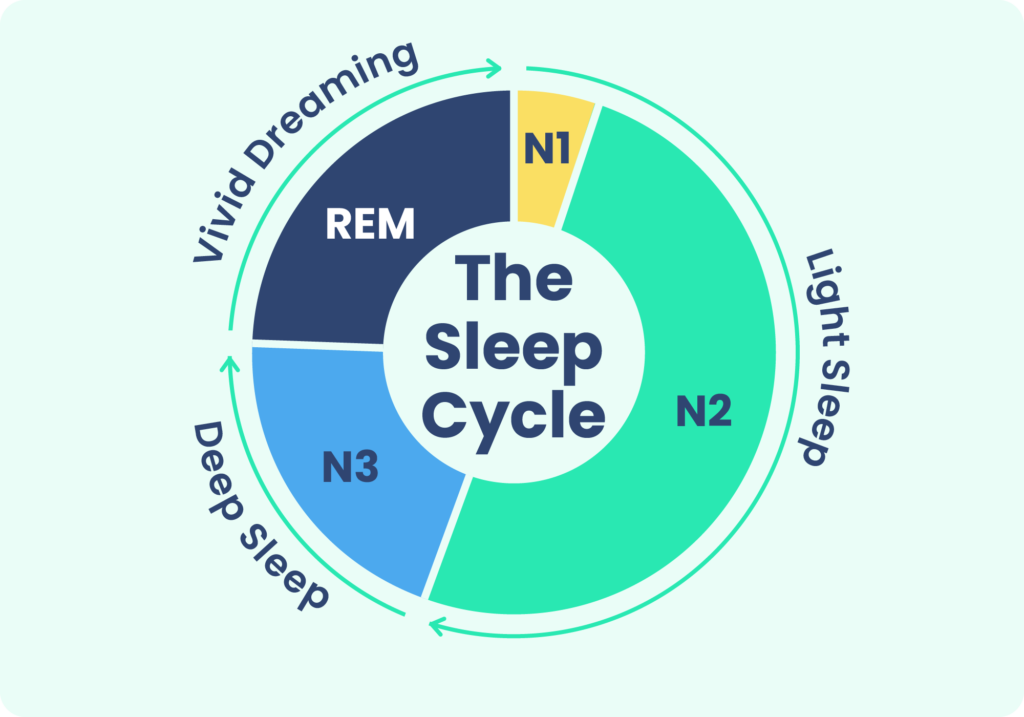Even after decades of research, the exact reason why we sleep remains one of the most enduring and intriguing mysteries in health science. To try to get to the bottom of this question, experts analyze how sleep works and what happens when we don’t get enough sleep.
Studies demonstrate that sleep is incredibly complex and has effects on virtually all systems of the body. Multiple parts of the brain are involved in the processes of producing hormones and chemicals that regulate sleep and wakefulness.
While there is much that is still to be learned about the intricacies of how sleep works, existing research sheds light on the mechanics of what happens in the brain and body during sleep. This knowledge reveals how sleep is connected to numerous elements of physical, emotional, and mental health and provides insights about how people can get better sleep.
What Happens When You Sleep?
Within a minute after falling asleep, notable changes start to affect both the brain and body. Body temperature drops, brain activity ramps down, and heart rate and respiration slow as well. Not surprisingly, the body’s energy expenditure is lower during sleep National Library of Medicine, Biotech InformationThe National Center for Biotechnology Information advances science and health by providing access to biomedical and genomic information.
It is important to recognize, though, that what happens during sleep is dynamic. Over the course of one night, you actually progress through multiple sleep cycles, each of which lasts between 70 and 120 minutes and is composed of separate sleep stages. These sleep stages are fundamental to how sleep works.
What Are the Sleep Stages?
There are four stages of sleep divided into two categories. The first three stages fall into the category of non-REM (rapid eye movement) sleep. The fourth stage is REM sleep.
| Category of Sleep | Sleep Stage | Other Names | Normal Length |
|---|---|---|---|
| NREM | Stage 1 | N1 | 1-5 minutes |
| NREM | Stage 2 | N2 | 10-60 minutes |
| NREM | Stage 3 | N3, Slow-Wave Sleep (SWS), Delta Sleep, Deep Sleep | 20-40 minutes |
| REM | Stage 4 | REM Sleep | 10-60 minutes |
In stage 1, you’ve just dozed off and started transitioning to stage 2, which involves further slowing of activity in the brain and body. It’s much easier to be awoken during these early stages of the sleep cycle.
Stage 3 is the deepest part of NREM sleep. In this stage, your muscles and body relax even more, and brain waves show a clear pattern of slowed activity that is markedly different from waking brain activity. It is believed that deep sleep plays an important role in recuperation of the body as well as effective thinking and memory.
Stage 4 is the only stage of REM sleep. During this time, brain activity picks up significantly, and most of the body — except the eyes and breathing muscles — experience temporary paralysis. Although dreams can happen during any stage, the most intense dreaming takes place during REM sleep.

The REM sleep stage is believed to be essential for the brain, enabling key functions like memory and learning. As the night goes on, it’s normal to spend a greater percentage of time in REM sleep with most of it occurring in the second half of the night.
The structure of a person’s sleep stages and cycles is known as their sleep architecture. While deep sleep and REM sleep involve more profound changes in activity levels, experts believe that each stage plays a part in a healthy sleep architecture that generates quality sleep.



